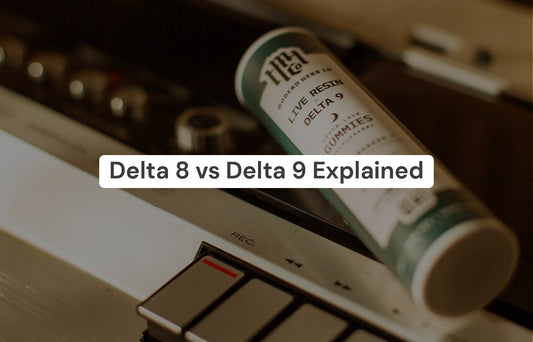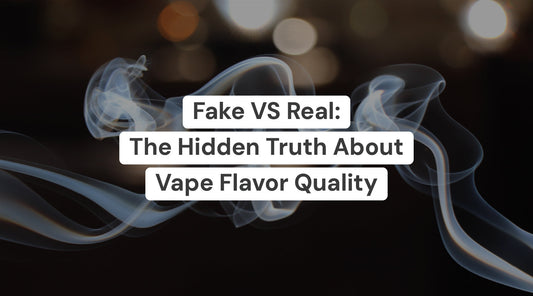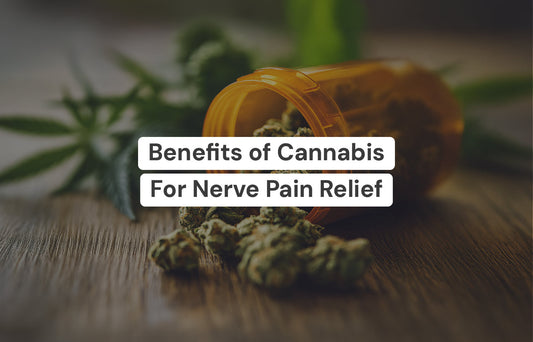HHC Vs. Delta 9 – The Ultimate Guide
HHC and delta 9 THC are two completely different cannabinoids, but many people may not know what makes HHC so different from delta 9.
From potency to composition and even legality, let’s talk about HHC vs. delta-9 in this ultimate guide.
What is Delta 9?
Before we compare the cannabinoids directly, let’s define what these compounds are in the first place.
A majority of the psychoactive compounds in cannabis are found in Delta 9 THC. This compound is also the most well-known, alongside cannabidiol (CBD). The delta 9 THC compound is the primary cannabinoid responsible for creating the high effects that most people associate with cannabis, but it also offers several supportive attributes that consumers enjoy.
A cannabinoid receptor is found in every part of the body, including the brain and central nervous system, and when delta 9 is ingested, it interacts with it. Since the cannabinoid has this binding ability, it’s able to create powerful psychoactive effects.
The actual effects of delta 9 will vary from person to person, especially depending on factors like method of consumption, tolerance, and dosage. However, many people find it useful for promoting blissful, comforting results.
Delta 9 THC is just one of the cannabinoids found in cannabis plants. While it is one of the most abundant compounds, it works best when combined with the other active cannabinoids present in the plant. Minor cannabinoids (cannabinoids present in small amounts) also present helpful results — ones that are even better when paired with THC.
You can find delta 9 THC available in various forms. If you’d like, you can enjoy pure delta 9 flower and use it in a pipe, bong, or joint. Or, you can find products like tinctures and oils for more discreet consumption. Of course, Delta 9 Edibles like gummies and caramels are also extremely popular options, especially when you have a bit of a sweet tooth. The options are endless.
How is Delta 9 Made?
Delta 9 THC is a natural cannabinoid found in the cannabis plant. This means that it's not made in a lab in any way. Instead, the plant naturally produces it, and this process is quite interesting. It all starts with a cannabinoid called CBGA.
CBGA is one of the first cannabinoids that the cannabis plant makes during growth. As time goes on and the cannabinoid is exposed to factors like light, it converts into THCA (and CBDA). If you couldn’t tell, THCA is THC’s precursor compound.
At this point, THCA stays undisturbed until it's exposed to heat or UV light. Once this happens, also known as decarboxylation, a carboxylic acid group (COOH) is actually removed from the compound's molecular structure. This removal converts THCA into delta-9 THC.
Thus, some strains have higher THC percentages because they started off with higher levels of THCA! When you take a look at a weed label that you buy, more often than not, you’ll see that the cannabinoids listed are both THCA and THC. Simply put, without THCA, you wouldn’t have THC.
What is HHC?
Now that we’ve talked about what delta 9 THC is let’s move on to defining HHC.
HHC is short for hexahydrocannabinol, and it’s a relatively new cannabinoid to the mainstream market (though this compound was first discovered decades ago). It was thanks to the 2018 Farm Bill guidelines that HHC Products was able to make its presence known in the world of hemp, and it’s exploded in popularity since.
This cannabinoid is often referred to as an analog of THC, as it has a similar molecular structure, just with slightly different modifications. In terms of effects, HHC does present psychoactive properties; however, these effects are going to be milder than those of other cannabinoids like D9. Some people find the compound to be very energizing and stimulating, but since it hasn’t been on the market for a while, limited research exists on its specific effects and potential applications.
Still, the cannabinoid is proving to be a great option for consumers seeking psychoactive effects but don’t live in areas where delta 9 is legal. Under the 2018 Farm Bill, as long as HHC is hemp-derived and doesn’t contain more than 0.3% THC, it is federally legal and widely available online.
It's important to note, however, that there are local regulations that affect the legality of HHC. Before making a purchase, ensure that the cannabinoid is legal in your area; otherwise, you may place an order and not be able to receive your product, and no one wants that.
HHC products come in various types, just like other hemp-derived cannabinoids. You can find products like HHC disposables, edibles, flowers, and so much more.
How is HHC Made?
Technically, HHC is a synthetic cannabinoid; it’s not naturally made like other compounds in the cannabis plant. Instead, it relies on hemp-derived cannabinoids and unique processes for curation.
Initially, those who first created HHC used THC derived from marijuana. Chemists then took hydrogen atoms and, using a process called hydrogenation, combined them with the THC molecules. This created a chemical reaction that changed the composition of delta-9 THC into HHC.
These days, the process of making HHC products is a little bit different, though primarily the same. Instead of using THC from marijuana, we now use hemp-derived cannabinoids to abide by the 2018 Farm Bill. However, the hydrogenation process still occurs, as this is what transforms the cannabinoid into HHC in the first place.
All of this means that the HHC you see on the market has been made in a lab; that’s simply the case with HHC products. We don’t know much about the effects of hydrogenation on cannabinoids yet, but we can expect to learn more as time goes on and we gain access to more research surrounding HHC and other synthetic compounds.
HHC vs. Delta 9 Comparison
Now that you’re familiar with both delta 9 THC and HHC let’s compare the two: how do these cannabinoids differ, and how are they alike?
Let’s start with the differences.
Main Differences
One of the biggest differences between HHC and delta 9 THC is potency. The effects of HHC tend to be milder compared to delta 9 THC. Many people report HHC to be stronger than delta 8 THC but not as strong as delta 9, making it a good middle-ground compound. However, if you’re seeking something extra-powerful, delta 9 products will be a better choice than HHC products.
Another main difference between delta 9 and HHC is how the compounds are made. As we mentioned, delta 9 THC is 100% natural. It is made organically within the cannabis plant, and it is present in abundance. There’s no lab intervention required. However, this is not the case with HHC.
HHC is a synthetic cannabinoid that can only be produced in a lab by experts using special procedures. You cannot extract high amounts of HHC from cannabis plants the way that you can with delta 9 THC.
Finally, the legalities of HHC and delta 9 THC are slightly different as well. According to the 2018 Farm Bill, hemp-derived HHC is legal if it contains less than 0.3% THC per gram. Delta-9 THC, however, is federally illegal in amounts greater than 0.3% by weight. It is legal on a state-by-state basis, though, with 38 states having legalized cannabis in some capacity.
Similarities
Of course, both delta 9 THC and HHC have psychoactive properties and can get you high. This is because they both interact with the cannabinoid receptors in the body, primarily the CB1 receptors in the brain and central nervous system.
Not to get too technical, but HHC and D9 share similar molecular structures as well. Both of these cannabinoids have a bicyclic structure with fused rings, which is unique among other cannabinoids in the plant.
Finally, THC has been looked into for its supportive effects, and we can assume that HHC has similar applications in this regard. In order to draw conclusions, more research must be conducted.
Can Delta 9 and HHC Be Mixed?
Yes, delta 9 and HHC can be mixed! In fact, many HHC blends come with delta 9 THC to create more powerful results.
It is crucial to remember that only the most knowledgeable consumers should combine these two, and even then, you must proceed with caution.
Bottom Line
The bottom line is that delta 9 THC and HHC are two very different cannabinoids, though they do share some similarities that are worth understanding. Most importantly, it’s crucial to remember that delta 9 THC is more powerful than HHC, and HHC isn’t an organic compound: it’s made in a lab. However, you can easily find both Delta 9 products and HHC products on the market if you’re interested, and as long as they come from hemp, they’re going to be legal under the Farm Bill.
Here at The Hemp Collect, we offer both HHC and delta 9 THC products for you to try — and have them shipped right to your door. Our delta 9 products come in various options, like Delta 9 Caramels and Delta 9 Gummies, and you can also choose from our high-quality selection of HHC Disposables if you want to vape on this brand-new compound.
Regardless of your preference, The Hemp Collect is here to provide you with the top-shelf delta and HHC products you need, as well as all the information you could want about these unique cannabinoids themselves.
Related Post

About Ashley Dellinger
Ashley Dellinger is a trailblazer in the cannabis and hemp sectors, serving as the Director of Innovation at The Hemp Collect. With a keen visionary mindset, she not only propels advancements in these industries but also showcases her versatility as a seasoned professional writer based in Oregon. As a collaborative force, Ashley works alongside leading brands, processors, and retailers to elevate industry standards. Ashley Dellinger's work not only sets new benchmarks but also inspires others to pursue excellence. For a closer look into her insights and experiences, connect with Ashley on LinkedIn, Instagram, and Facebook.
















